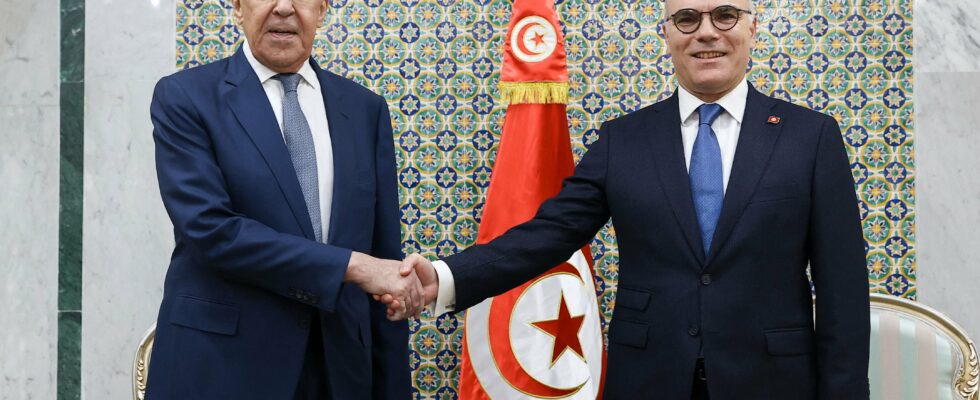Have Russian planes landed at the airport on the Tunisian island of Djerba? This is what reported, Sunday May 19, La Repubblica. An article in the Italian daily reported “Russian military” planes having landed “in recent days” on this island located approximately 130 kilometers from the Libyan border. If the authorities in Tunis have remained silent on the subject, Moscow denied this on Monday, describing the information as La Repubblica of “lies” and “falsifications”.
The nature of this Russian military presence in Tunisia is not yet clearly identified. But the news worried the United States, at a time when Moscow is seeking to anchor its influence in Africa, by positioning itself as a bulwark against the supposed “neocolonialism” of the West. “We remain concerned by the activities of Wagner, and those supported by Russia on the African continent, which fuel conflicts and promote irregular immigration, including to Tunisia,” reacted a spokesperson for the State Department American to the Italian daily.
Cereals, energy…
In recent months, the Tunisian presidency has indicated that it intends to strengthen its ties with Russia. In a press release published on December 21, following a “working visit” to Tunis by the head of Russian diplomacy Sergei Lavrov, the Tunisian presidency said it wanted to “strengthen the strong ties of friendship and fruitful cooperation” with Russia, citing as areas to be explored further, “grains, energy, tourism, cultural and scientific cooperation and student exchanges”.
Russia had indicated that it was “ready” to supply more cereals to Tunisia. As recalled The world, Russian grain imports exploded in 2023 with an increase of 435% compared to 2022 to reach a total value of around 1.1 billion dinars (326 million euros), according to the National Institute of Statistics . After four years of water stress and a catastrophic 2023 season, Tunisia must import all of its needs for durum wheat, soft wheat and barley until spring. However, the country, which is highly indebted, lacks liquidity to finance these imports, which leads to regular shortages of flour. “We agreed to develop our cooperation in all areas,” Sergei Lavrov emphasized at the time.
Despite the international sanctions against Russia, Tunis has tripled its imports of “coal, oil and derivatives” compared to 2022, itself already much higher than previous years. Since the invasion of Ukraine in February 2022, Tunisia has imported more Russian oil than in the previous nine years, indicates The world.
“A ripe fruit waiting to fall”
Sergei Lavrov, who had not come to Tunisia since 2019, assured that Moscow did not intend to supplant Tunisia’s other partners, in an allusion to the United States and Europe, the main commercial ally and contributor in terms of aid from the country. Tunisia, led by authoritarian President Kaïs Saïed, has traditionally been tied to the Western camp and its army is closely linked to the United States. Tunis was granted the status of “major non-NATO ally” by Washington in 2015.
Furthermore, as explained The world, more political cooperation, particularly in electoral matters, was established between Moscow and Tunis. The Independent High Authority for Elections (ISIE), responsible for organizing the polls in Tunisia, signed a cooperation memorandum with the Russian electoral commission on March 15.
A possible pro-Russian evolution of the country, theoretical at this stage, would therefore mark a rupture. It is in any case not impossible. Tunisian public opinion in fact criticizes a supposed “double standard” by Europeans and Americans in the war on the Gaza Strip. This perception serves Moscow’s discourse on a West which would already be disqualified in a geopolitical context also marked by the double Russian breakthrough in the Sahel and Libya.
